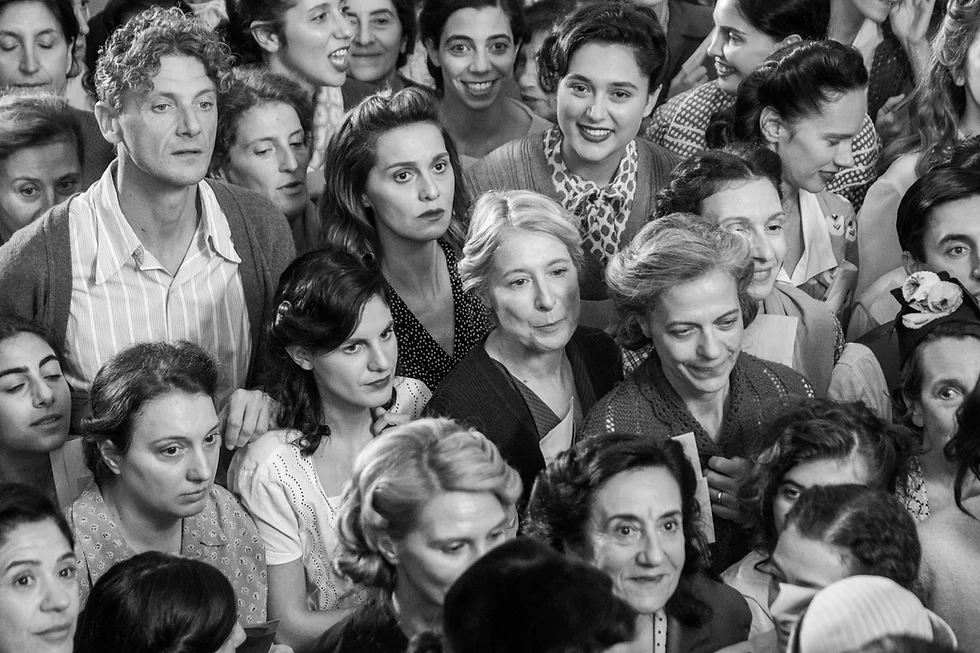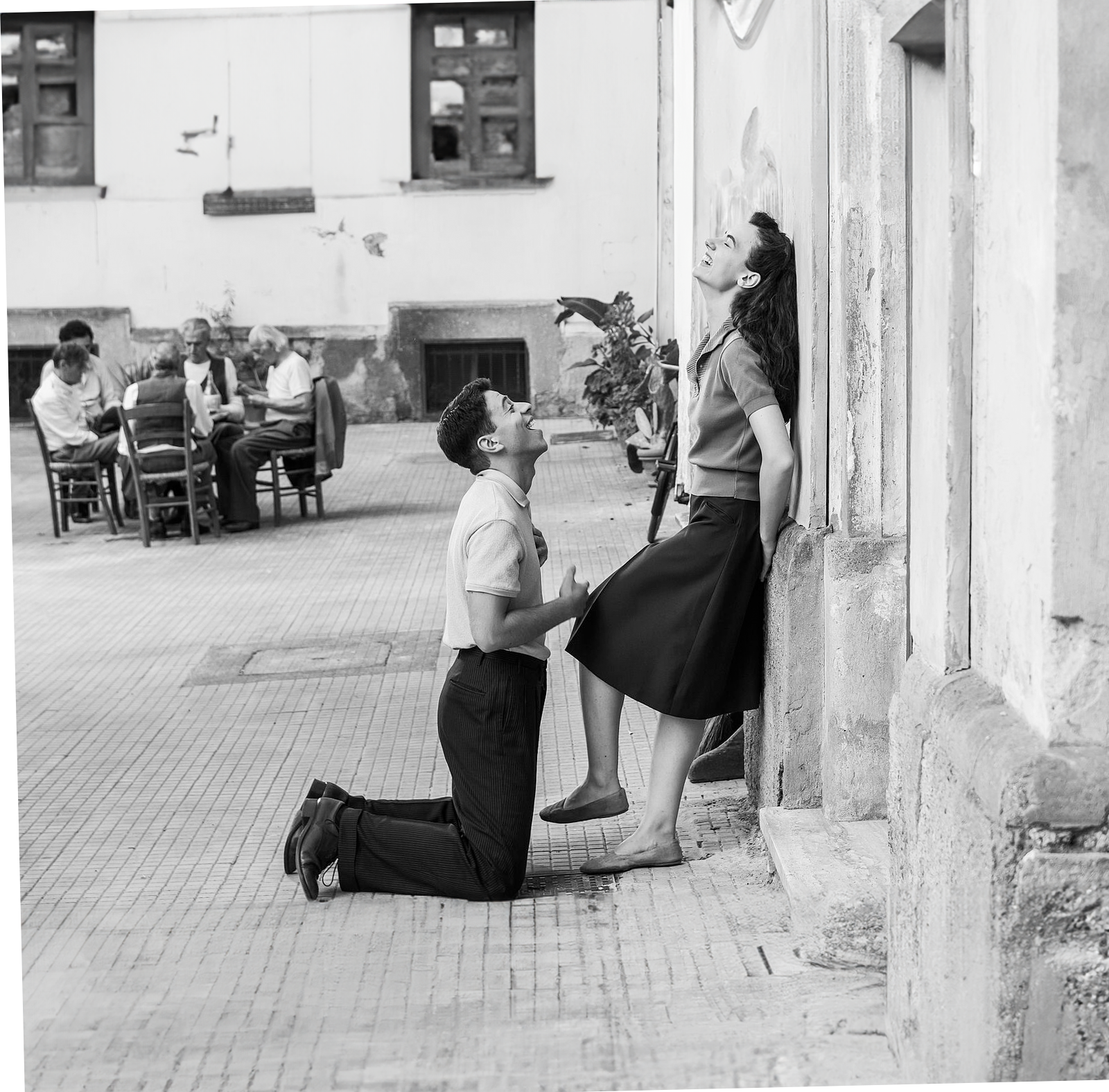There’s Still Tomorrow — the Italian film everyone should watch in 2025
Paola Cortellesi's directorial debut is a powerful reminder of how recently women won basic rights
Few films have ever made me cry. Leon: The Professional caught me off guard with its innocent sweetness, 生きる (Ikiru) eloquently answered the question ‘What do we live for?’, and Past Lives left me with a bittersweet feeling and a gentle heartache. By comparison, C’è ancora domani (There’s Still Tomorrow), made me audibly sob in the cinema for a large part of its runtime. The film is written and directed by Paola Cortellesi, who has created nothing short of a masterpiece of contemporary cinema, and this article is my attempt to give her the credit she deserves.

The movie is set in post-WWII Rome, at the time occupied by the Allies, and presents the story of Delia (as played by Cortellesi), who is married to Ivano, a violent and irritable man. The couple has three children, of which Marcella is the eldest. Delia spends her days looking after the house, her kids, and Ivano’s rude and bedridden father, and working an assortment of odd jobs around the neighbourhood. She only has a couple of friends: Marisa, a greengrocer, and Nino, a mechanic with whom she shares a romantic past.
For all intents and purposes, Delia is an average woman in this time and place. As such, she is stripped of her individuality and reduced to a gender stereotype and a sexual object. The only crumb of personality that is left of her is that “She talks too much.”, as her father-in-law says. She is also a victim of domestic violence, and the audience witnesses the frequent, never-ending abuse she has to go through every day. It is a heavy watch, appealing to one’s humanity, and the outrage and sadness it evokes can be felt throughout the film. Every time Delia commits a single mistake, however insignificant, the violence thrust upon her by the men in her life is enough to make you shiver in your seat and pray for it to end. This thought is vocalised by Marcella, who asks her mother “Why won’t you just leave?”. Delia sees in Marcella’s soon-to-be-fiance her own history repeating itself: he claims to love her, so much so that she must be only his, and if not his, then nobody’s. It is this twisted reasoning that Cortellesi so eloquently presents to the audience, as she shows us the reality of patriarchal violence, not simply as a remnant of the past, but as a perpetual disease that kills every single day and propagates through the ages, a fact that many choose to ignore.

There’s Still Tomorrow is also a movie about mother-daughter relationships, class and status, and solidarity. Delia eventually helps her daughter escape her engagement by blowing up her boyfriend’s family’s business with the help of an Afro-American soldier called William. Although Marcella is broken by the news of her failed engagement, Delia knows she has helped her avoid a life of abuse and violence. The two share a quiet moment on screen in which the only sounds are the bittersweet sobs of the daughter.
I must here briefly praise the technical aspects of this film. The story is presented theatrically, acted out almost as if it were on stage, and yet the immersion that Cortellesi achieves is unbreakable. This is an even greater accomplishment considering that the movie is in black and white, a creative choice that is also historically appropriate. The set, the costumes, the music, everything comes together as only the most experienced of directors can make it happen. Yet this is the first film Cortellesi has directed, although she has famously starred in many others. Finally, the acting is phenomenal, Cortellesi’s performance first and foremost, but Valerio Mastandrea (Ivano), Emanuela Fanelli (Marisa), and Romana Maggiora Vergano (Marcella) all interpret their characters seamlessly, contributing to what is by far one of my favourite movies of all time. The Roman dialect used is fun for Italians, and charming for those who hear it for the first time. The way the abuse is portrayed is almost metaphorical, and effective, while completely avoiding the trauma of showing crude violence on screen. The movie is a symphony of impeccable cinematography, brilliant acting, and sensational storytelling far beyond what I could’ve expected upon walking into the cinema.
Back to the plot. Delia’s plan of running away is foiled by the death of her father-in-law, forcing her to remain a prisoner of her husband. But when all seems lost, she remembers that There’s Still Tomorrow. And tomorrow indeed comes around, and she runs away with a letter she received from an unknown sender, being hunted down shortly after by Ivano, followed by Marcella. In what can only be described as some of the best storytelling ever shown on screen, Cortellesi compels you to feel, to live the anxiety and the fear that these women have to suffer through every time they are around the men who supposedly love them. Delia arrives at her destination, and Marcella hands her the ‘letter’, which was never a real letter in the first place. It’s a ‘tessera elettorale’ - an electoral card - and Delia is going to vote, because for the first time in Italy’s history, on the 2nd and 3rd of June 1946, women could finally vote.
Being born a woman means to already be part of a movement. Whether you want it or not
Every year, Italy still celebrates the choice of republic over monarchy; a decision made by popular vote from 13 million women and 12 million men - 89% of the voting population at the time. In a shocking, unexpected plot twist, Cortellesi slaps the audience in the face and reminds us that Italy is a country founded, by both men and women, on equality. Ivano is impotent in front of the polling station because voting gives a voice to all the people, like Delia, who cannot use theirs. There’s Still Tomorrow is a film about domestic abuse and women’s rights, it’s a cinematographic masterpiece, and it’s a tool to understand the present and never forget the past.








